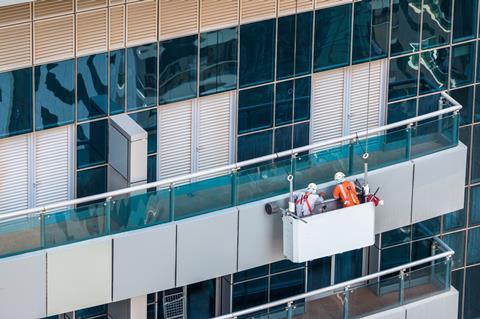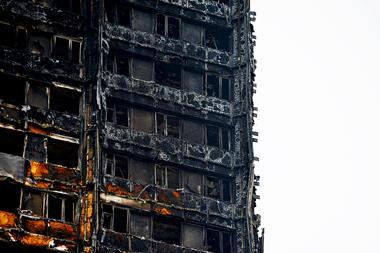The headlines were improving for Number 10. Britain’s vaccine roll-out was, as Ursula von der Leyen admitted, a ‘speed boat’ to the EU’s ‘tanker’ and Boris was seen as having relocated his mojo.

Housing secretary Robert Jenrick’s unveiling of his cladding renewal scheme could have maintained the positive newsflow. But instead, the tide has turned against it once more with the realisation that many builders and flat owners are going to be made to carry the can through not fault of their own.
Jenrick pledged an additional £3.5bn on top of the government’s initial £1.6bn to “fully fund” the cost of replacing unsafe cladding for all leaseholders in residential buildings more than 18 metres tall, in the wake of the Grenfell tragedy. (Some estimates put the cost at up to £15bn).
But owners of leasehold flats in buildings from 11 to 18 metres will only be offered low-interest loans to pay for removal of combustible cladding – and only if deemed necessary.
Leaseholders were told soothingly in a housing ministry press release that none will pay more than £50 a month to the freeholders who will take out the long-term, government-backed loans. About 140,000 flats are reported to have the risky cladding – effectively turning unwitting owners into ‘mortgage prisoners’ confined to homes they can’t sell.
The ministry stressed that mortgage providers will be willing to lend against them where cladding removal is needed. That in theory should unlock thousands from their penury. Eventually.
The government will have to bite the bullet and stump up much more of the bills
It will take, at a guess, at least two years to agree a contract and find a builder to remove the cladding. Leaseholders in an apartment block in Manchester have been billed an average of £78,000, according to The Guardian. Even without interest, that would take 130 years to repay.
However, even if flats were considered not to be at risk under ministry guidelines, I suspect that not many banks will approve mortgages for new buyers to free up owners to move on. Their only option will be to sell at steep discounts to a new wave of vulture funds. Either way, through loans or lower prices, the consequence will be crushing negative equity.
In its haste to face off a media campaign on behalf of blighted leaseholders, the government has not thought through the policy and will have to bite the bullet and stump up much more of their bills – and then attempt seek redress from the ultimate ‘culprits’.
It was inevitable where the first port of call would be.
Not the web of cladding manufacturers, architects, contractors or subcontractors whose sectors are being probed in the ongoing Grenfell Inquiry. No, a new £2bn tax will be levelled over the next decade on “the largest property developers”.

This does not imply any liability on their part but “reflects the benefit they will derive from restoring confidence to the UK housing market”. (Surely sellers of Victorian terraced homes benefit from that too, so why not cast the net wider?)
The industry response was surprisingly muted, even from those that have never built an apartment (possibly since they’ve been recipients of Help to Buy support). Over 10 years, £2bn is small beer even restricted to, say, the top 20 housebuilders and will no doubt be reflected in lower prices they pay for land.
But a few points of principle rankle. First, many housebuilders did not build the tall buildings in question. The largest, including Barratt, Taylor Wimpey and Persimmon, have pre-emptively and with no legal compunction agreed to make good repairs. (Will the levy be offset by these payments or provisions?)
Towers built in the past two decades or so have been in accordance with Building Regulations, as overseen by the government. Much of the media has implied ‘greedy’ developers can afford to pay.
Like banks, housebuilders are often branded as pariahs – that is until politicians need funds, when they become everybody’s ‘magic money tree’.
Alastair Stewart is an equities analyst and consultant





























1 Readers' comment